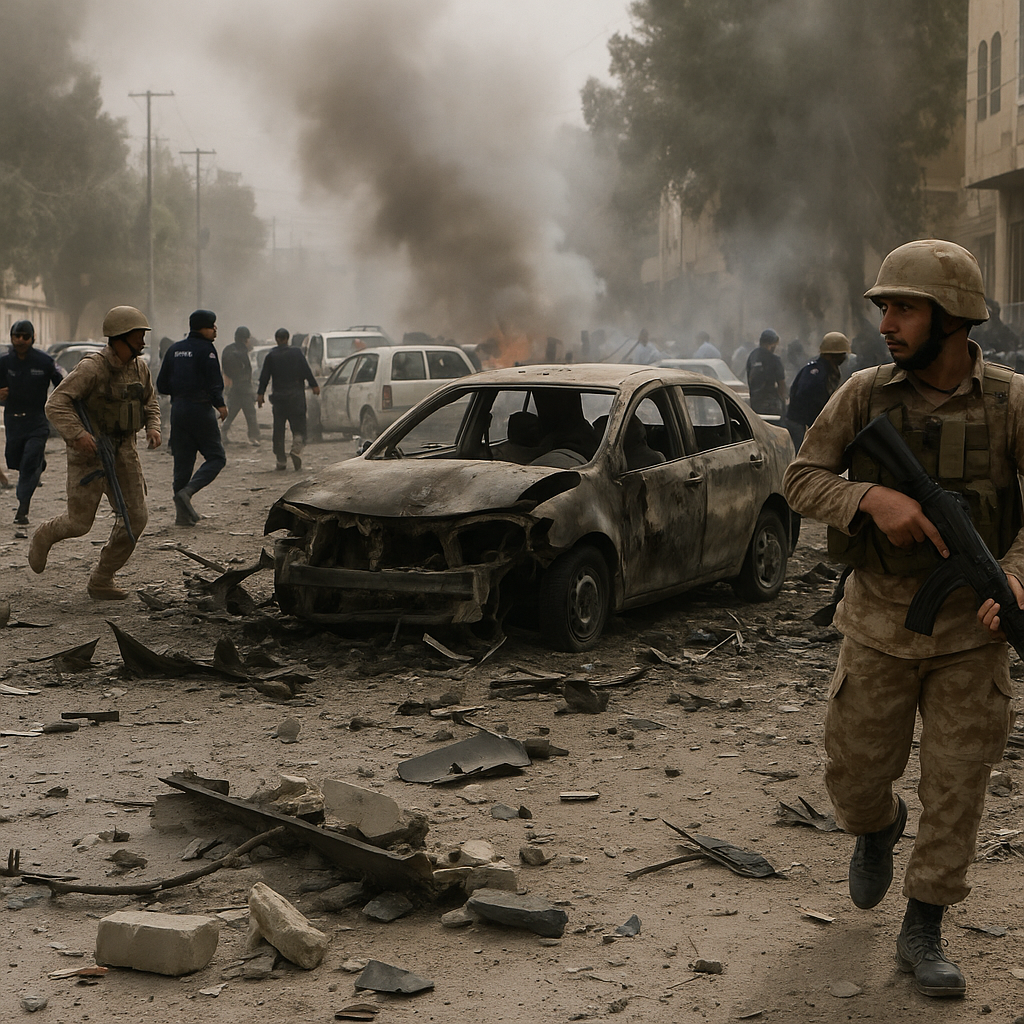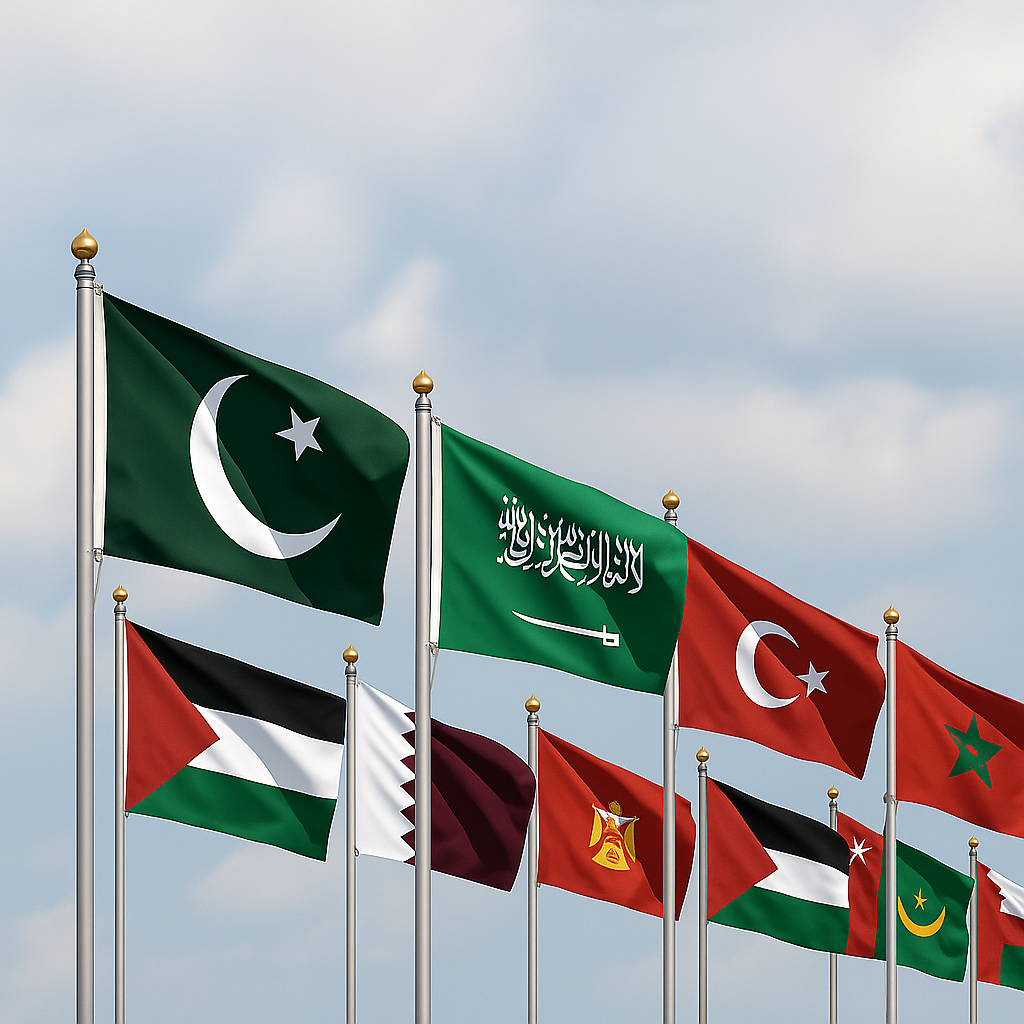Four Terrorists Killed as 10 Martyred, 32 Injured in Quetta Blast Near FC HQ
Quetta was once again shaken by terror on Tuesday when a powerful explosion ripped through the area near the Frontier Corps (FC) Headquarters, killing 10 people and injuring at least 32 others. The attack, one of the deadliest in recent months, targeted a high-security zone and triggered immediate chaos across the city.
The Attack: How It Unfolded
According to security officials, a vehicle laden with explosives turned from Model Town toward Hali Road before detonating near the FC HQ, a key paramilitary installation in Quetta. The blast was so strong that its sound was heard across the city, shattering windows and damaging nearby vehicles and shops.
Moments after the explosion, a fierce gun battle broke out between the attackers and security forces. In the exchange, four terrorists were neutralized before they could inflict further damage. Their quick elimination prevented what authorities believe could have been a much larger catastrophe.
Casualties and Emergency Response
The deadly blast left both civilians and security personnel among the dead and wounded. Victims were rushed to the Civil Hospital and the Trauma Centre, where scenes of chaos unfolded as families scrambled to find their loved ones.
- Martyred: 10 people, including FC personnel and bystanders.
- Injured: 32, with at least six in critical condition.
Hospitals across Quetta were immediately placed on emergency alert, with doctors, nurses, and paramedics summoned to duty. The provincial health department confirmed that blood donations were urgently required for those critically wounded.
Swift Action by Security Forces
Authorities praised the rapid response of the Frontier Corps and police, who not only neutralized the attackers but also cordoned off the area within minutes of the blast. Bomb disposal units were deployed to ensure no secondary devices were present, while intelligence agencies launched an immediate investigation into the network behind the assault.
Chief Minister Balochistan, Mir Sarfraz Bugti, declared that such cowardly acts could not break the resolve of the state. “The terrorists were eliminated before they could achieve their mission. This is proof that our forces remain vigilant and prepared to defend our people,” he said.
Condemnations Pour In
The attack drew widespread condemnation across Pakistan and abroad:
- The President of Pakistan described the bombing as a suicide attack carried out by extremist elements and vowed that the perpetrators would face justice.
- The Prime Minister labeled the attackers as “agents of chaos” and promised exemplary punishment, calling the attack a failed attempt to destabilize the province.
- Internationally, the U.S. Embassy termed it a “heinous act of violence,” expressing solidarity with Pakistan. The Russian Embassy also condemned the incident, while Pakistan’s envoy at the United Nations urged the global community to hold all terror sponsors accountable.
Balochistan Under Fire
This incident adds to a growing wave of militant violence in Balochistan, where security forces, state installations, and civilians have long been under threat from separatist groups and extremist outfits. Analysts believe groups such as the banned Tehreek-i-Taliban Pakistan (TTP) and Baloch insurgents may be increasing cooperation, using sophisticated planning to challenge the state’s authority.
Targeting the FC headquarters — a symbol of security presence in the region — is seen as a bold move meant to instill fear and project strength. Experts caution that such incidents could escalate if networks financing and sheltering these groups are not dismantled swiftly.
What Lies Ahead
The Quetta blast underscores the fragile security environment in Balochistan. For Pakistan, this tragedy raises urgent questions about counter-terrorism strategy, intelligence gaps, and the need for stronger coordination across security agencies.
Key areas to watch:
- Expanded Operations: Security forces are expected to launch intelligence-led operations across Quetta and adjoining districts.
- Political Pressure: The government faces rising public anger to ensure accountability and prevent similar attacks.
- International Angle: If cross-border involvement is confirmed, it could add new dimensions to Pakistan’s regional diplomacy.
- Civilian Resilience: Despite fear and grief, locals have begun donating blood and volunteering, reflecting resilience in the face of tragedy.
The Quetta blast is more than just another terror attack — it is a reminder of the persistent threat militancy poses to Pakistan’s stability. While the elimination of the attackers prevented greater devastation, the lives lost mark another painful chapter in the country’s fight against terrorism.



